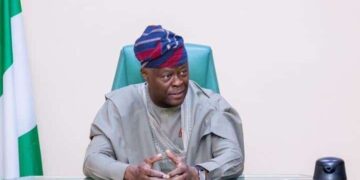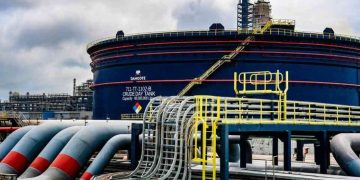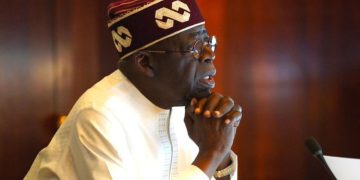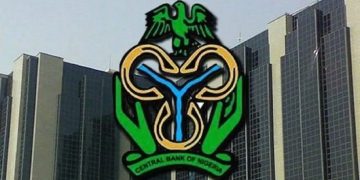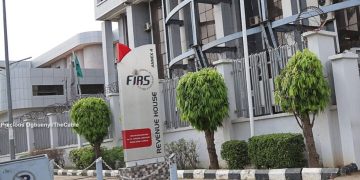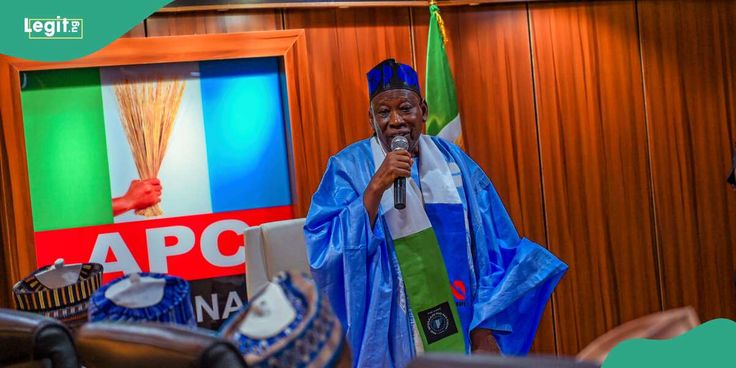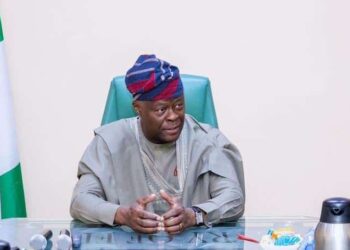Dr. Abdullahi Umar Ganduje has formally resigned from his position as National Chairman of the All Progressives Congress (APC). His resignation, confirmed on Friday, June 27, 2025, brings an end to months of mounting political tension, internal party agitations, and renewed debate over regional equity within the APC’s power structure.
Ganduje’s decision to step down did not come entirely as a surprise. Political insiders had for weeks hinted at growing unrest within the party, particularly from stakeholders in the North-Central zone, who had persistently demanded that the party’s chairmanship be returned to the region. Ganduje, a prominent figure from the North-West and former two-term Governor of Kano State, had assumed the chairmanship in August 2023 following the abrupt exit of Senator Abdullahi Adamu. While his emergence was initially seen as a stabilizing measure after a turbulent transition, his tenure quickly became controversial due to its perceived disregard for the party’s informal zoning principles.
Multiple party sources, including senior figures within the APC National Working Committee (NWC), confirmed that President Bola Ahmed Tinubu had been closely involved in behind-the-scenes negotiations to manage Ganduje’s exit. The president reportedly endorsed the move as part of a larger plan to unify the party ahead of the 2027 general elections. According to those familiar with the discussions, Tinubu urged Ganduje to prioritize party unity over personal ambition, especially as tensions threatened to boil over into full-scale factionalism.
Health concerns were also cited as a reason for Ganduje’s resignation. While details remain unclear, it was widely reported that he referenced health-related challenges during internal communications regarding his decision to step aside. Nonetheless, political analysts argue that the overwhelming pressure from key party blocs and the presidency itself left him with little choice.
The North-Central region had felt marginalized since the departure of Adamu, its representative, and had repeatedly petitioned the party hierarchy for the restoration of their stake in the leadership structure. Their argument was both strategic and symbolic: with the presidency held by the South-West, and the Senate Presidency and House Speakership shared between the South-South and North-West, they believed the party’s chairmanship was the only equitable slot left to them.
With Ganduje’s exit, the party is now expected to appoint an acting national chairman—likely from the pool of current vice chairpersons—until a formal elective convention scheduled for December 2025. That convention will determine the permanent successor and may well set the tone for APC’s political direction heading into the 2027 polls.
Ganduje’s political journey has been both influential and controversial. A career politician and one of the most recognizable political actors from northern Nigeria, he served as Deputy Governor under Rabiu Kwankwaso before taking the reins of Kano State in 2015. His two-term governorship was marked by both infrastructural development and numerous scandals, including corruption allegations that haunted him even after leaving office. Nonetheless, his loyalty to President Tinubu and the APC leadership was never in doubt, and it was this loyalty that earned him the party’s top job after the 2023 elections.
His resignation now signals a critical realignment within the APC, one that may determine the party’s ability to stay cohesive in the years ahead. Already, the party is under pressure to deliver on its promise of internal democracy, equitable zoning, and inclusive leadership. With regional blocs asserting their relevance and political ambitions simmering ahead of 2027, the APC faces the challenge of managing internal expectations while maintaining a united front.
In the immediate aftermath of his resignation, reactions have poured in from across the political spectrum. Some party loyalists have praised Ganduje’s decision as a selfless move that will allow the APC to refocus on governance and national cohesion. Others, however, view it as a forced resignation—proof that informal power structures and executive influence still dominate the inner workings of Nigerian political parties.
Regardless of the motivations behind his exit, Ganduje’s resignation marks a turning point in APC’s internal politics. It is a moment that reflects both the party’s strengths and its deep-rooted fractures. As the party begins the process of transition and reinvention, all eyes will be on who takes over the reins and what direction they steer the APC in the turbulent lead-up to the 2027 elections.


